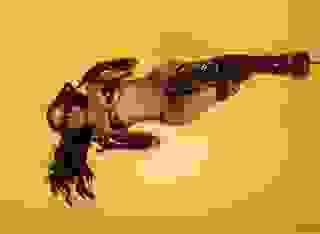- Exhibitionist & Voyeur
- The Floggings Will Continue...
Note: You can change font size, font face, and turn on dark mode by clicking the "A" icon tab in the Story Info Box.
You can temporarily switch back to a Classic Literotica® experience during our ongoing public Beta testing. Please consider leaving feedback on issues you experience or suggest improvements.
Click hereApologies to readers who are waiting on the next chapter of "Anjali's Red Scarf". I'm still working on it but it's coming slowly, so in the meantime here's something rather different that's been sitting in my drafts folder for a while.
*****
"So," I said to Sigrid, "we're cutting our travel budget but increasing training. By the way, have I mentioned how good that coat looks on you?"
Sigrid and I haven't worked together for several years now, but her office is on the same train line as mine, so every other week we share the ride in to the city. If there are two seats together, we'll sit and chat. More often it's standing room only, and we'll share a stanchion and lean in to talk as the commuting masses press around us.
"Why, thank you," she replied. "Some nice person bought it for my birthday. Oh, Tim, I didn't tell you my news. Derek"—that was her current boss—"wants to talk to me about organising a team-building event."
"A team—oh. Oh dear."
We were both thinking about the same day, five years in the past and many miles away.
* * * * *
I was twenty-two. I'd been working with Joint Coordinated Network Inc's software division for a few months, my first real job, and when they first sent me the offer I thought I was incredibly lucky to be working with one of the biggest names in office productivity solutions.
How soon the novelty wears off, eh?
JCN had over a hundred thousand staff worldwide, but somebody in upper management had decided that big offices were inefficient and discouraged innovation. So they'd decentralised, breaking their big divisions into smaller groups, and moved the groups to wherever office space was cheap. This is how I found myself assigned to the Paradigm Reimagination Group, a team of forty-odd people stationed in a small office in a suburban industrial park.
PRG was working on a new project, a web-based office productivity application, and I'd been brought on as a developer. The concept was interesting enough, and even as a wet-behind-the-ears code monkey I could see that it had plenty of commercial potential if we could get it right.
Our rivals certainly thought so. Barron Software, an up-and-coming outfit looking to build market share, had just announced that they were working on a similar product. So we were officially in a high-stakes race, and while there was still some way to go, our chances weren't looking good.
Whose fault was that? Oh, there are so many places I could point the finger.
There was Howard, our senior developer. He'd been with JCN since the 1980s, and he knew everything there was to know about the inner workings of our products. Problem was, he didn't feel like sharing. Often I'd end up playing Freecell for hours on end, not because there was no work to do, but because Howard didn't think I was up to it. "It'd take too long to teach you," he'd say, "faster to do it myself."
There was the anonymous person who'd printed out the wrong version of the project specs for a planning meeting, leading to us spending two months on a build that didn't meet requirements. Most of my work on that one ended up being deleted unused. Demoralising. Nobody quite remembered who had brought the printouts, and nobody was prepared to own up.
There was the ongoing feud between Kathleen (general office admin) and Margaret (the boss's PA). For reasons neither of them would discuss, they'd stopped talking to one another, which had led to a very memorable day when Margaret scheduled a visit and speech from the Regional Head of Operations in the same timeslot that Kathleen had booked a protracted test of the fire-alarm system.
And let's not even talk about the Milk Bandit.
I could go on and on. There were so many other dysfunctions I could name, interpersonal conflicts and grudges that made Middle-Eastern politics look straightforward by comparison. But the biggest one, in my eyes, was the boss himself: Alistair.
Alistair had once been an Olympic rowing coach, and he never let us forget it. Every day as I walked into the office, I was met by a framed photograph of him standing alongside the team as they showed off their silver medals.
That had been thirty years earlier. On the strength of that achievement, and perhaps because he'd been to the same private school as several of the company execs, he'd managed to talk his way into a management position at JCN. Alistair fervently believed that managing a software development project was fundamentally no different to managing a rowing team, a belief that he shared with us at every opportunity.
Every Monday morning at ten a.m. Alistair would call us all together into the break room and deliver a Motivational Speech. Inevitably he would exhort us to Pull Together, Keep A Productive Rhythm, Put Your Backs Into It, Don't Be Afraid To Get Your Feet Wet, and so forth, as seventy-eight eyes stared wistfully at the biscuits that sat so tantalisingly close. But his signature quote, repeated more and more frequently as we circled closer and closer to the drain, was this:
"When our competitors are giving a hundred and ten per cent, we have to give a hundred and twenty!"
Nevertheless, working at JCN had its compensations. For me, the greatest of these was the presence of Sigrid, the newest member of the office's small graphics team. She had joined three months before I did, and as new staff we'd both been volunteered onto the office End-Of-Year Party Planning Committee together. So we spent half an hour together every week—more if I could contrive to synchronise my tea-break with her—and I'd become aware of her many good qualities. In addition to being cute (her button nose, her pixie cut, her blue-grey eyes) she was smart, and she was kind; no matter what you brought to her, she'd do her best to help. We both liked Belle and Sebastian, and we'd both been falsely accused of milk theft.
All in all, I had become rather more than fond of her, and yet I had no idea what to do about it. I was shy and inexperienced, having graduated from university only slightly less virginal than when I'd gone in. I consumed as much internet porn as you'd expect from a lad of my age, and I had no shortage of explicit fantasies about every attractive woman in sight, but that part of me seemed quite detached from the part that gazed wistfully after Sigrid and daydreamed about being one another's one and only.
I wasn't at all sure how one went about asking out a co-worker (what if she says no?) so I made no moves. I simply hung around with her as much as I could, and waited for her to notice my signals and take the first step.
In hindsight, it's not a strategy I would recommend. Sigrid seemed to enjoy my company, but seemed oblivious to my romantic interest. Furthermore, there was a fly in the ointment. Sigrid had a friend named Kelly, a tall freckled redhead from Ireland who also worked in the graphics team, and who had taken an instant dislike to me for reasons I couldn't fathom.
If I came by Sigrid's desk, Kelly would be there to intercept me: "Hi Timothy, Sigrid's very busy right now, but I'm sure I can take care of whatever it is you need." If I was in the break room when they arrived for lunch, Kelly would steer Sigrid to some other table; if they got there first, I'd arrive to find Kelly had arranged things in such a way that I couldn't sit next to Sigrid, or she'd hint that it was time for them to finish up their break.
It was all subtly done. Had I ever thought to bite the bullet and just ask Sigrid out, I don't know what Kelly would have done about it. But there was no danger of me doing that. I didn't have the nerve.
In any case, we had other things to worry about. Our project had been delayed by a month, and then by another. Head Office was taking an interest in the state of things, and they were not happy. I gather they had communicated to Alistair that coming second might have been impressive in the Olympics but was rather less acceptable in a two-horse race, and that we needed to shape up and start delivering.
The first consequence of this was an increase in the length and frequency of Alistair's speeches, which mysteriously failed to motivate us. He also took to micro-managing, which made things all the worse, since we had to spend much of our time explaining the detail of our work to somebody incapable of grasping it. With PRG on track to miss yet another deadline, Alistair resorted to desperate measures.
"Next Friday," he announced, "we will be going on a team-building retreat. We'll all be picked up from the front of the office at eight AM sharp."
"What time do we get back?" somebody asked.
"Around seven PM."
There was a quiet, collective groan. Somebody muttered about childcare.
"I expect everybody to attend, and to put their best into it. Remember, when your competitors give a hundred and ten per cent..."
"We give a hundred and twenty!" we chorused, and I felt a little part of my soul dying.
* * * * *
I arrived a little early on Friday, so I was out the front waiting with a few others when the black bus labelled VERSATILE CORPORATE DYNAMICS pulled up and two women got out.
The first was an impossibly chirpy blonde in a bright blue dress that hugged her figure. Her head bobbed from side to side as she talked. "Helloo everybody! I'm Cherie! You must be the JCN group!"
Alistair, who had been counting us, bustled over to meet her. "Alistair Barker. We're just waiting on a few others."
"No problem." That was the second woman, who had just stepped down from the bus.
Where Cherie was all bubble and smiles, this one looked business. I couldn't easily place her age, or even her ancestry; she might have been twenty-five or fifty, Anglo or Asian or some kind of mixture, for all that I could tell. Her hair was black, tied back in a neat bun, and she wore half-moon glasses that reminded me of my old headmistress. When the sun caught them, I saw the lenses were shaded with just a hint of purple, and that was the only trace of colour in her wardrobe. Her jacket and skirt were charcoal-grey, and she wore three-inch black stilettos.
They hurried us onto the bus, with Cherie taking our names as we boarded. Kelly had already glommed on to Sigrid, so I settled for a place up the back next to Anh, one of my fellow developers.
Once Alistair was satisfied with the head count, Cherie gave the word to the bus driver and we pulled out. Ashley stood at the front, facing us, and addressed us over the PA.
"Hello everybody. I'm Ashley, your host and facilitator today. You've met my assistant Cherie, and our driver is Derek. In a moment I'll tell you some more about what we have planned, but first I want to set a few ground rules.
"Rule number one, we want everybody to stay focussed on the activities we have planned. That means no distractions, no phones, no checking your watches. I promise we'll have you back at the office by seven, and until then we want your full attention. I know it's hard to break that habit of checking your messages, so Cherie will be coming through the bus now to collect all your phones, watches, and so on, and to confirm any dietary requirements. Please talk to Cherie if you have a genuine need to hang on to them."
Cherie stood up, holding a large sack in one hand and a clipboard in the other, and began working her way along the aisle starting with Alistair. Into the bag went his Rolex and Blackberry, she made a brief note on her clipboard, and then she continued down the bus.
Ashley continued. "Rule number two, you can say no to any activity. Today is about pushing your boundaries and discovering what you're capable of, and what makes it meaningful is that you choose to do it. We'd like you to stay with us for the whole day, but we're not going to push anybody further than they're willing to go."
I doubted Alistair would be happy with anybody exercising that option.
"Rule number three, we want everybody to feel safe pushing those boundaries. When someone is willing to get out there and make themselves vulnerable, we want everybody to respect the courage that takes. Nobody is to be shamed for being honest today, okay?"
We mumbled "okay".
"Now, sit back and relax and we'll be there soon."
Ashley said something to the bus driver, and small TV monitors descended from the ceiling, playing a video. It began with slightly dated-looking footage of happy people looking productive in an office, accompanied by synthesiser music that sounded right out of the 1980s. The music culminated with a breathless female choir whisper-singing:
"Versatile - Corporate - Dynamics!"
Anh turned and whispered to me, "Boy, they must have paid a fortune for that song-writing."
"Ha. This is going to be terrible."
The office scene continued, panning across acres of improbably cheerful people bustling around clean cubicles and verdant pot-plants, and then to my surprise Ashley walked into shot. She smiled at two people having a business discussion over a water cooler, and then turned to address the camera. A caption introduced her as "Dr. Ashley Marchand, Occupational Psychologist".
"I'm standing in the office of Umbrella Insurance. It's been a record-breaking year for Umbrella, increasing market share by thirteen per cent and with staff productivity eighteen per cent higher than the market leader. But just five years ago, things here were very different..."
The scene dissolved into a flashback: the same office, but with everybody looking grumpy and sullen. The background music was tense, the lighting was dull, even the potted plants looked unhealthy. People argued in the background, or scuttled past one another without speaking.
"Umbrella was on the verge of bankruptcy, all because of negative social dynamics. I'm going to show you how we turned that around..."
The video went on for quite a while. It'd show an example of people having a bad interaction, then Ashley would talk about what had gone wrong, and then she'd show how people handled the same situation after Versatile Corporate Dynamics (TM) had worked their magic.
The message was simple enough. An organisation's success is largely dependent on its staff being able to work together, which requires open, honest communication and commitment to the team's success. But people and organisations slip into negative patterns that prevent them from trusting one another, so they build walls and stop communicating, driven by rivalry, fear, insecurity. Nothing ground-breaking, but the way Ashley put these concepts, it seemed so obvious that this was the key to a productive workplace.
I was already thinking of how some of our own problems fit in with the sort of ideas Ashley had presented, when I was distracted from that chain of thought by Cherie.
"Hi! Can I get your names please, and any dietary requirements?" Anh and I told her: him vegetarian, me allergic to fish. "And your phones and watches please?"
I didn't mind the interruption. While my heart yearned only for Sigrid, it wasn't the only organ in my body, and Cherie was very pleasant to look at. But it only took a moment for her to collect our details and our electronics, and then she was gone, heading back to the front of the bus.
When I tuned back in to the video, it was just finishing up. "Today," said Ashley, "we want to show you how you can change your business and your life by making positive social dynamics work for you. I hope you're ready to challenge yourself!"
Then the picture faded out, and in case we'd forgotten the company's name, they sang it again: "Versatile - Corporate - Dynamics!"
I hadn't been paying much attention to our route, but I'd vaguely noticed the stop-start-turn-stop of city traffic. I looked out the window just in time to see the bus turn into an underground car park. We drove down ramps, level after level, and then at last the bus pulled to a stop. Cherie took the mike. "Okay everybody, we're here! Please come with me!"
She counted us off the bus, and after a brief elevator ride we found ourselves in one of those inner-city convention spaces you can hire by the hour. It felt soulless. The walls were bare and windowless, their flat expanse broken only by a couple of whiteboards and the necessary doors to lifts, toilets, and break room. The carpet was an uninspiring mottled grey. There was a table at one side, on which sat a couple of boxes marked with the VCD logo. Next to that, for some reason, was an electric shredder.
Oddly enough, there were no chairs. Instead there were beanbags. Lots and lots of beanbags, large and small, in a variety of colours and patterns, scattered all round the floor.
"All right!" said Cherie, as the door closed behind the last of the stragglers. "Could everybody please come and get a pen and a notepad? We're going to do a little activity. Once you've got yours, please find a spot and make yourself comfortable."
I collected mine and then found myself a beanbag. I would have sat near Sigrid, but of course Kelly had steered her to a spot where there were only enough bags left for the two of them, so instead I sat back in a corner.
"Now," said Ashley, "we're going to start with something a bit challenging. Let's think about secrets. I want each of you to think of at least three secrets about work. Something that's making your job harder, or that you feel bad about. Something that's weighing you down. Something you can't tell to anybody. Then I want you to write those secrets down, making sure nobody else sees them."
She held up one of the notepads, and tore out a sheet. "Then once you've written down your secrets, you're going to fold up the page like this, and you'll bring it up to the front... and you're going to shred it."
Cherie flicked a switch, and Ashley lowered her paper towards the shredder. One moment it was in her hand; the next, there was a brief blurrrt and tiny fragments of paper were fluttering to the bottom of the clear bag under the shredder.
"Remember, nobody will see what you write. That's a promise. Just be honest with yourself, and write something that matters to you. We'll give you a few minutes to think about it."
I was glad to be in the corner, where I didn't have to worry about anybody behind me glimpsing what I wrote. Once I figured out what to write, that was. I didn't have any difficulty thinking of things that were bugging me at work; the real challenge was keeping it down to a single page.
I wrote a few, then a couple more in smaller print, and looked around the room wondering what other people were writing. I was about to fold my sheet when I realised I hadn't put down the most important thing. The pad was small, and most of the space was filled, but I found just enough room in the margin to squeeze it in.
I want to ask Sigrid out but I don't know how.
Then I did fold my sheet, double and triple until I could hide it inside a closed hand, and I walked up to the front. Most of the others were ahead of me, and I could hear the shredder working in bursts. Then it was my turn. I had barely touched the paper to the shredder's maw before it was pulled out of my grasp, and in an instant of noise my confession of desire was reduced to confetti, jumbled in with the debris of a hundred other secrets.
I turned to walk back to my beanbag. Before I had taken three steps, Ashley caught me by the arm. "Wait a moment, Timothy."
Behind me, the shredder chewed through one last page, and my co-workers returned to their places. "Now," she said, speaking loud enough for the whole room, "Timothy, how did you feel when you dropped your secrets into the shredder?"
I cleared my throat. "It felt... good? Sort of liberating?"
She nodded, and turned to the audience. "Who else felt like that? Put your hands up if you did." About half of them raised their hands immediately, and most of the others soon followed their peers.








